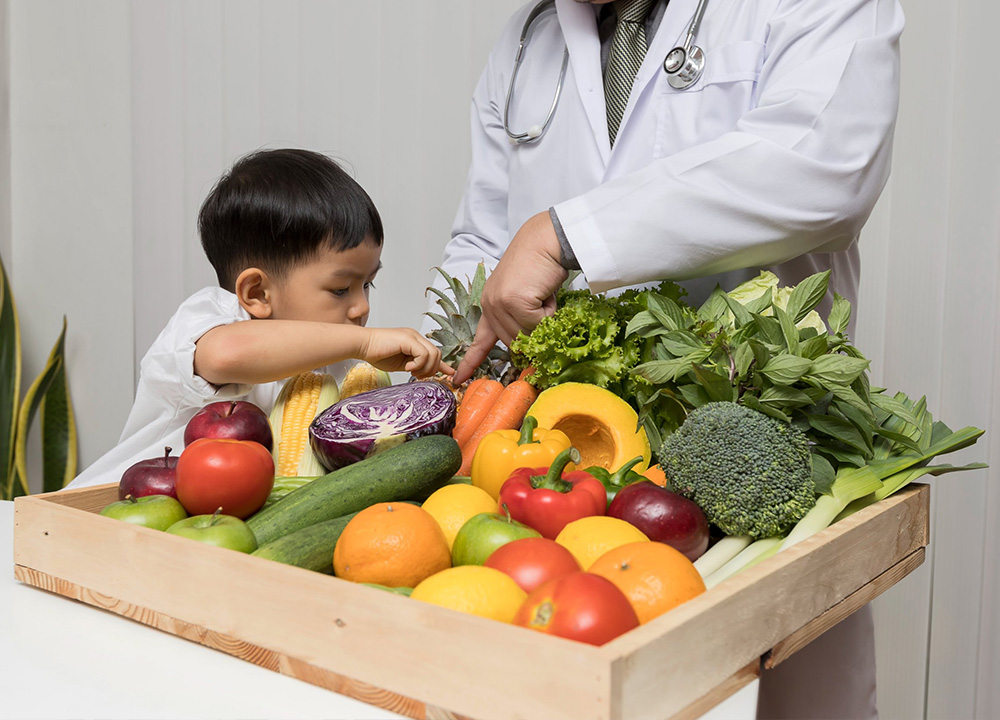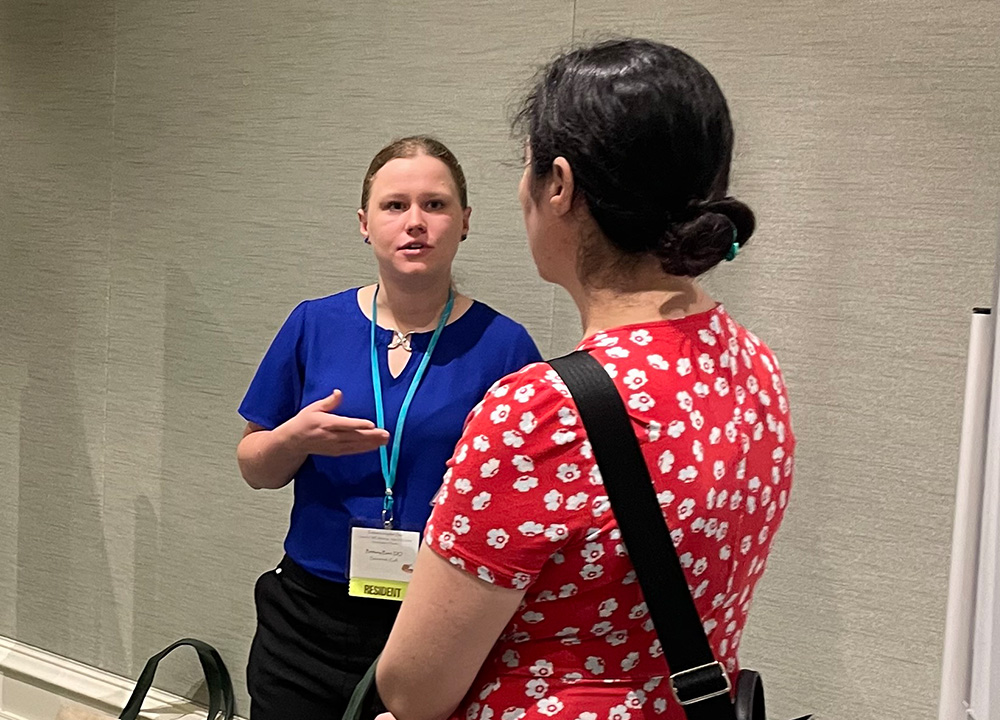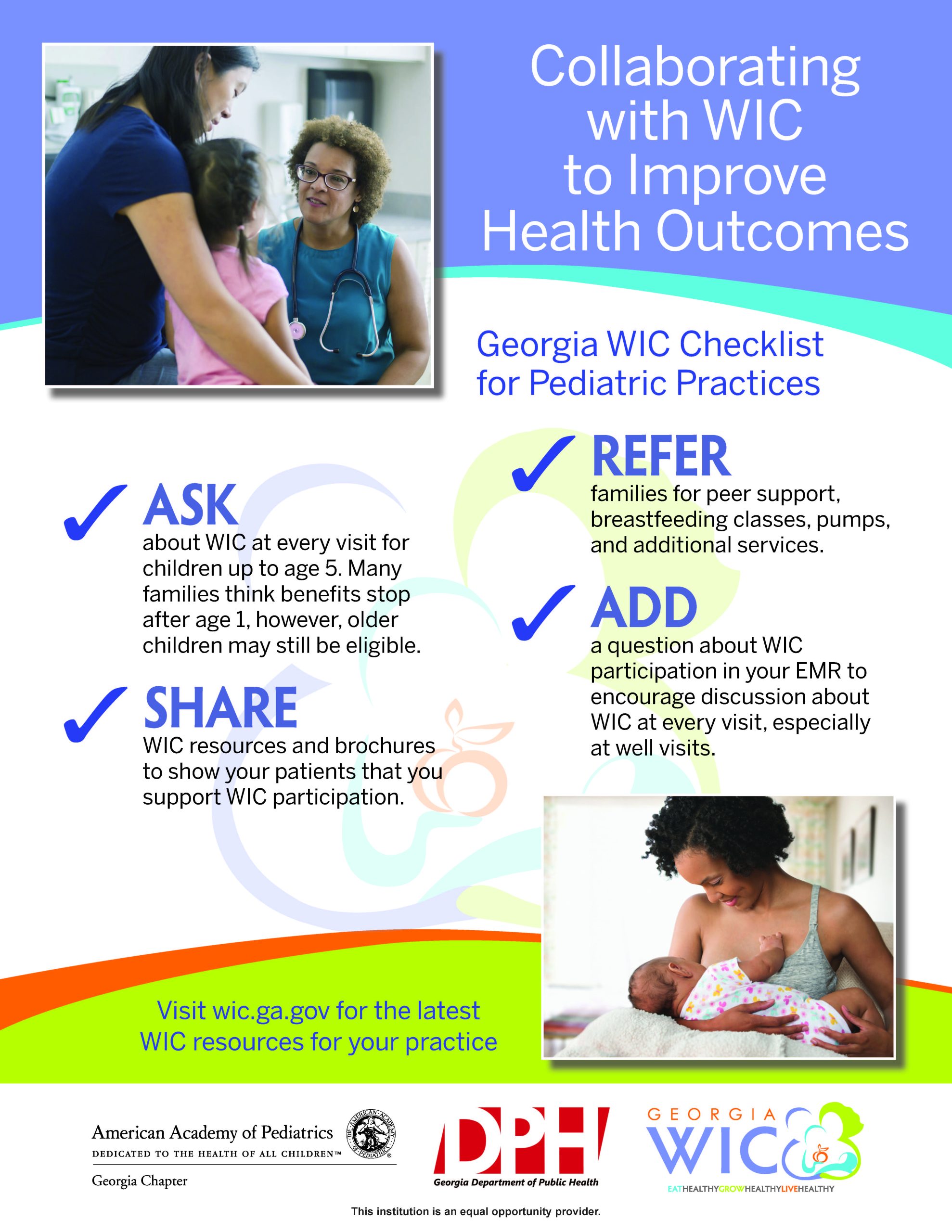Programs
Nutrition
View the programs we offer to support and improve child nutrition.
Programs
Nutrition
View the programs we offer to support and improve child nutrition.


View All Nutrition Programs
View All Nutrition Programs
GAAAP offers a variety of programs and resources for improving and maintaining healthy child nutrition. View the programs in-depth below:
GAAAP offers a variety of programs and resources for improving and maintaining healthy child nutrition. View the programs in-depth below:
WIC
The Special Supplemental Nutrition Program for Women, Infants, and Children (WIC) is a short-term intervention program designed to influence nutrition and health behaviors in a targeted, high-risk population.
The Special Supplemental Nutrition Program for Women, Infants, and Children (WIC) is a short-term intervention program designed to influence nutrition and health behaviors in a targeted, high-risk population.

WIC General FAQs
WIC Infant & Child Formula Algorithm Webinar and Resources
The Committee on Nutrition will be unveiling its new Formula Algorithm for Children on Georgia WIC soon! The Georgia AAP has been working with the Georgia WIC Program to develop a child formula algorithm to assist pediatricians and WIC Staff in the decision-making process of providing formulas for children. This project is similar to the work that was done with the infant formula algorithm. The algorithm, authored by Jay Hochman, MD, FAAP and Stan Cohen, MD, FAAP will be disseminated soon!
A webinar on the infant and child algorithm was presented September 29, 2017 by Jay Hochman, MD and Kylia Crane RDN, LD. To view the recording, click here.
The Georgia WIC Referral Poster
The Georgia WIC Referral Poster
This poster was designed to remind practices to refer their patients to WIC. There are many eligible pregnant, postpartum women, infants, and children that can benefit from WIC if enrolled, yet many referrals are submitted just for infants that are on special formulas that require a medical documentation form. A gap exists for the many patients that can benefit from all the resources and services that WIC provides.
Click Here to download the poster.
If you’re interested in receiving a hardcopy of the Infant Formula Algorithm or Referral Poster, please contact Kylia Crane at kcrane@gaaap.org or 404.881.5093.
WIC Physician Outreach Campaign
WIC Physician Outreach Campaign


What Are We Doing?
What Are We Doing?
Our goal is to maximize utilization of public health programs services through a collaborative partnership between primary care physicians and public health.
The Georgia Chapter of the American Academy of Pediatrics and the Georgia WIC Program have established a statewide physicians outreach campaign to educate physicians and their office staff about WIC benefits/referral process and help address infant and child feeding issues, which can be supported by physicians and WIC staff to improve the nutrition status of women, infants and children.
Outline of Discussion Topics:
- Certification period-encouraged referrals
- Referral Form
- Breastfeeding services (Peer Counselor Program, Nutrition Education, Breast Pumps)
- Medical Documentation Form
- Qualifying Diagnoses for WIC Special Formulas
- USDA Guidelines for special formula based on medical necessity
- WIC resources- wic.ga.gov
All participants will receive an outreach folder with the following items:
- Infant Formula Algorithm & Resource Guide
- Referral Poster
- Formula Guide
- WIC Approved Formulas Listing
- WIC Outreach Flyer
- WIC Approved Food List
- NWA WIC Pocket Calendar
- Business cards
Georgia’s WIC Rebate Formula Contract: Mead Johnson Nutriton
Georgia’s WIC Rebate Formula Contract: Mead Johnson Nutriton
Georgia’s WIC Rebate Formula Contract: Mead Johnson Nutriton

Georgia WIC is currently in a contract with Mead Johnson Nutrition. They won the competitive bid to be the rebate contractor of infant formula for Georgia’s WIC. The contract with Mead Johnson went into effect October 2019.
Approximately every three years, WIC State agencies are required by law to seek competitive bids for the provision of contract infant formulas. WIC State agencies receive a rebate for each can of contract infant formula purchased by WIC participants. Having a formula contract maximizes resources such as nutrition services for WIC clients and the patients we serve. As a result of awarding the contract to a new formula manufacturer, there will be changes to Georgia’s WIC approved formulas.
With the contract, the following contract formulas will not require a prescription:
- Milk Based Formula: Enfamil Infant
- Lactose-Reduced Formula:Enfamil Gentlease
- Soy Based Formula: Enfamil ProSobee
The complete listing of all Georgia’s WIC approved formulas and medical foods requiring medical documentation can be found at www.wic.ga.gov under the Health Care Provider link.
Please remember that we share the vision to encourage and support WIC mothers to breastfeed as the optimal source of nutrition. WIC eligible moms that decide not to breastfeed should be given a WIC contracted formula or an alternative formula that is medically indicated.
The Chapter will continue to provide your practice with information and resources via The Georgia Pediatrician, and on our website www.gaaap.org. If you have any questions regarding this information, please contact Kylia Crane, RD, LD, Nutrition Coordinator at 404.881.5093 or via email at kcrane@gaaap.org.
Changes to the Georgia WIC Food Packages
Changes to the Georgia WIC Food Packages
On October 1, 2009, the Special Supplemental Nutrition Program for Women, Infants and Children (WIC) significantly changed the food packages that participants receive. The changes to the WIC food packages are designed to improve the nutrition and health of pregnant women, breastfeeding and non breastfeeding postpartum women, infants and children up to age five. The new food packages promote and support the establishment of successful, long-term breastfeeding, provide WIC participants with a wide variety of foods including fruits, vegetables, and whole grains, and provide greater flexibility in tailoring food packages to accommodate the cultural food preferences of WIC participants.
On October 1, 2009, the Special Supplemental Nutrition Program for Women, Infants and Children (WIC) significantly changed the food packages that participants receive. The changes to the WIC food packages are designed to improve the nutrition and health of pregnant women, breastfeeding and non breastfeeding postpartum women, infants and children up to age five. The new food packages promote and support the establishment of successful, long-term breastfeeding, provide WIC participants with a wide variety of foods including fruits, vegetables, and whole grains, and provide greater flexibility in tailoring food packages to accommodate the cultural food preferences of WIC participants.


Highlights of the Food Package
Highlights of the Food Package
- Addition of baby foods – fruits and vegetables for all infants and meat for exclusively breastfed infants
- Modified infant formula amounts to reflect varying needs at different ages
- Addition of a fruit and vegetable voucher (Fresh / Frozen / Canned)
- New Whole Grain Options for Women and Children (Bread / Brown Rice / Whole Grain Tortillas)
- Whole Grain Cereals- At least half of the cereals on the Approved Food List MUST be Whole Grains
- Required issuance of low fat milk for children over 2 years of age and women
- Soy Milk and Tofu allowed
- Reduced quantities of milk, eggs, and juice and cheese for women and children
Reinforces Nutrition Education Messages
The new food packages are consistent with the nutrition education messages provided to participants:
- Eat more fruits and vegetables
- Decrease saturated fat
- Increase whole grains and fiber
- Drink less sweetened beverages and juice
- Babies are meant to be breastfed
How does this impact my practice?
Approximately 51% of Georgia infants and children qualify for the WIC program, which means a significant number of your patients are receiving WIC benefits. These changes will not only affect the choices of foods that your patients can receive but it will also require you to individualize the package based off your patient’s unique medical needs. Significant changes have been made for the process for writing WIC prescriptions for special formulas & medical foods.
Provides greater consistency with infant feeding practice guidelines
Modifies infant formula amounts based on age and feeding method. Infant foods are added and juice eliminated in the packages for older infants in order to promote healthy dietary patterns.
Provides culturally diverse foods
The new food packages provide more participant choice and a wider variety of foods than the previous food packages. Foods such as tortillas, brown rice, soy-based beverage, canned salmon, and a wide choice of fruits and vegetables will provide State agencies increased flexibility in prescribing culturally appropriate food packages.
Promotes Breastfeeding
The food packages for the breastfeeding infant-mother dyad provide stronger incentives for continued breastfeeding, including providing limited formula to partially breastfed infants during the first month of life. Additional quantities and types of food are provided to breastfeeding mothers.
Medical Documentation
Medical Documentation


Medical documentation ensures that you have approved the issuance of special formulas & medical foods that are appropriate for your patient’s specific medical needs. The goal of the new medical documentation requirements is to improve communication and coordination of care between WIC, the family, and the medical home. This will also ensure that there is appropriate justification for the use of special formulas & medical foods.
Medical documentation is required in the following situations:
- Any infants receiving non-contract/exempt or specialty infant formula or WIC eligible medical food
- Allowable supplemental foods to be provided in addition to the formula, for those participants receiving exempt or specialty infant formula or WIC eligible medical food
- Children receiving milk substitutions of soy beverage, tofu, or extra cheese
The new requirements for GA WIC approved special formulas and medical foods include:
Name of authorized WIC formula or WIC-eligible medical food. Must be prescribed in ounces (reconstituted fluid) per day
Qualifying condition(s) for issuance of WIC formula prescribed and/or supplemental food authorized and ICD-9/ICD-10 code
Length of time (1-6 months) the prescribed WIC formula and/or supplemental food is required by the participant
Original signature, date and contact information of the requesting health care provider. No signature stamps will be accepted
Must specify foods allowed for all clients on special formulas (age 6 months & older)
Can ONLY be signed by a physician, physician assistant, or nurse practitioner
Physician must authorize the issuance of any tofu or soy milk to children
Qualifying Medical Diagnoses Guide for Special Formulas & Medical Foods
Examples of Qualifying Medical Conditions
- Premature birth
- Low birth weight
- Failure to thrive
- Inborn errors of metabolism & metabolic disorders
- Gastrointestinal disorders
- Malabsorption syndromes
- Immune system disorders
- Severe food allergies requiring the use of an elemental formula
- Other life-threatening disorders, diseases, or medical conditions that impair the ingestion, digestion, absorption or utilization of nutrients that could adversely affect the participant’s nutritional status
Examples of Non-Qualifying / Excluded Medical Conditions
- Solely for the purpose of enhancing nutrient intake or managing body weight without an underlying condition
- Non-specific formula intolerance or food intolerance
- Participant preference, parental preference, or food dislikes
Examples of Non-Specific Diagnoses that will not be accepted for special formulas and medical foods include: colic, milk allergy, milk/formula intolerance, feeding problems, poor appetite, inadequate intake, and digestive disturbances
Medical Documentation Forms
Medical Documentation Forms have been created to make it easier to document the specific information required by the United States Department of Agriculture regulations. Using the GA WIC Medical Documentation Forms (Form #1 and Form #2) and completing them appropriately will save your practice valuable time and effort.
Use Form #1 to prescribe special formulas and/or medical foods and to approve the WIC foods allowed based on a patient’s medical condition(s). Instructions and resources for form completion are included.
Use Form #2 to provide referral data and to authorize special food substitutions for children
These fillable forms can be saved, printed, signed and then faxed to the local WIC clinic or provided to the WIC participant.
The Georgia WIC Program has developed a webpage for healthcare providers to access GA WIC forms and resources ( Medical Documentation forms 1 & 2, WIC Formula Guide, WIC Approved Food List, and Medical Community Video)
Please visit the following link to view this information: http://wic.ga.gov/hcprovider.asp
Georgia WIC Medical Documentation FAQs
Childhood Obesity

Expert Committee Recommendations
Expert Committee Recommendations
The Expert Committee Recommendations on the Assessment, Prevention and Treatment of Child and Adolescent Overweight and Obesity were released in June 2007, with the writing papers published in the December Supplement of Pediatrics. The committee, made up of representatives from fifteen health professional organizations including the American Academy of Pediatrics, was convened by the American Medical Association (AMA) and co-funded in collaboration with the Department of Health and Human Services’ Health Resources and Services Administration (HRSA) and the Centers for Disease Control and Prevention (CDC).
The AMA, HRSA and the CDC, recognizing that obesity is a major public health problem, assembled an expert committee of representatives from organizations involved in medicine, nutrition, mental health, epidemiology and psychology to update the 1997 recommendations for the care of overweight and obese children. The National Initiative for Children’s Healthcare Quality (NICHQ), together with key partners, has created an Implementation Guide to accompany the newly released Obesity Recommendations.
The Committee on Nutrition of the Georgia Chapter, American Academy of Pediatrics is committed to decreasing the prevalence of obesity in the children of this state. You are probably familiar with the statistics. The newest studies are even more frightening. Preliminary data indicates that in Georgia, eighteen percent of eighth graders and twenty five percent of 4th graders are over the 95th percentile for weight.
Childhood Obesity FAQs
Breastfeeding - Best for Baby and Mother
Breastfeeding - Best for Baby and Mother
Breastfeeding is acknowledged as the preferred method of infant feeding by the American Academy of Pediatrics, the American College of Obstetrics and Gynecology, the National Association of Pediatric Nurse Practitioners, The National Healthy Mother/Healthy Babies and others.
Scientific research overwhelming indicates that breastfeeding is the superior method of feeding. Breastfeeding significantly lower rates of diarrhea ear infections and lowers respiratory illness. There are a number of studies that show a protective effect of human milk feeding against necrotizing enterocolitis, sudden infant death syndrome, allergic disease, early childhood caries, insulin-dependent diabetes, and obesity. Developmentally, breastfed infants have better visual acuity, and evidence suggests that their cognitive development is very good!
Breastfeeding is acknowledged as the preferred method of infant feeding by the American Academy of Pediatrics, the American College of Obstetrics and Gynecology, the National Association of Pediatric Nurse Practitioners, The National Healthy Mother/Healthy Babies and others.
Scientific research overwhelming indicates that breastfeeding is the superior method of feeding. Breastfeeding significantly lower rates of diarrhea ear infections and lowers respiratory illness. There are a number of studies that show a protective effect of human milk feeding against necrotizing enterocolitis, sudden infant death syndrome, allergic disease, early childhood caries, insulin-dependent diabetes, and obesity. Developmentally, breastfed infants have better visual acuity, and evidence suggests that their cognitive development is very good!

Breastfeeding Benefits to Baby:
Human milk is nutritionally perfect for human infants.
Human milk changes to meet the needs of a growing baby.
Human milk is easily digested, so breastfed babies have less gas, colic and spitting up.
Human milk contains important nutrients as well as special protective factors that we listed earlier: Less diarrhea, fewer urinary tract infections, fewer ear infections etc.
Breastfeeding gives babies a chance to touch, to smell, to hear, to see, to taste, to know their mother from the first moment of birth.

Breastfeeding Benefits to Mom:
Women who breastfeed have less vaginal bleeding and less risk of hemorrhage after birth.
Milk production requires 500-1000 calories a day. One-half of the calories from body fat stored during pregnancy. Women who breastfeed lose pregnancy weight more easily than women who formula-feed.
Breastfeeding reduces the risk of breast cancer in young women. The longer you breastfeed, the lower your risk.
Breastfeeding reduces the risk of uterine cancer and ovarian cancer.
Breastfeeding improves bone density and reduces the risk of hip fractures in older women.
Breastfeeding requires no mixing, no measuring, and no clean-up, making nighttime feedings quick and easy.
Breast and babies are portable.
Breastfeeding promotes a special relationship between a mother and her baby.
Parents who breastfeed save more than $1000 in infant feeding cost during the first year alone.
Barriers to Breastfeeding
Special attention should be given to barriers to breastfeeding for all women especially African American and other minority women. Below are several barriers to breastfeeding that where identified in focus group findings:
Embarrassment
Lack of social support
Worried about not enough milk
Lack of support at work or school
Worried about having to eat well
Studies show that mothers who receive advice, information and encouragement from their physicians to breastfeed are more likely to breastfeed than those who do not receive such advice.
The American Academy of Pediatrics Policy Statement outlines physicians roles in the promotion and protection of breastfeeding. (Pediatrics, Vol. 100 No. 6 December 1997, Pgs. 1035-1039). We can work together to increase breastfeeding in Georgia!
How WIC can help you support Breastfeeding
WIC encourages all pregnant women to breastfeed their infants unless contraindicated for health reasons.
Breastfeeding women receive nutrition counseling and a greater variety and quantity of food than non-breastfeeding, postpartum women.
Breastfeeding Resources:
Are you looking for local breastfeeding and lactation resources?
This helpful guide provides you with resources specific to your area.
Georgia Lactation Resources and Support Directory
American Academy of Pediatrics Breastfeeding Section
http://www.aap.org/breastfeeding/
Georgia Breastfeeding Coalition
http://georgiabreastfeedingcoalition.freewebspace.com/
Healthy Mothers Health Babies of Georgia Powerline
(770) 451-0020 and
1-800-822-2539
Georgia Poison Control Center; Grady Memorial Hospital, Atlanta, GA.
(404) 616-9000 or
(800) 282-5846
Answers to questions on Drugs and Lactation
The National Women’s Health Information Center
1-800-994-WOMAN

